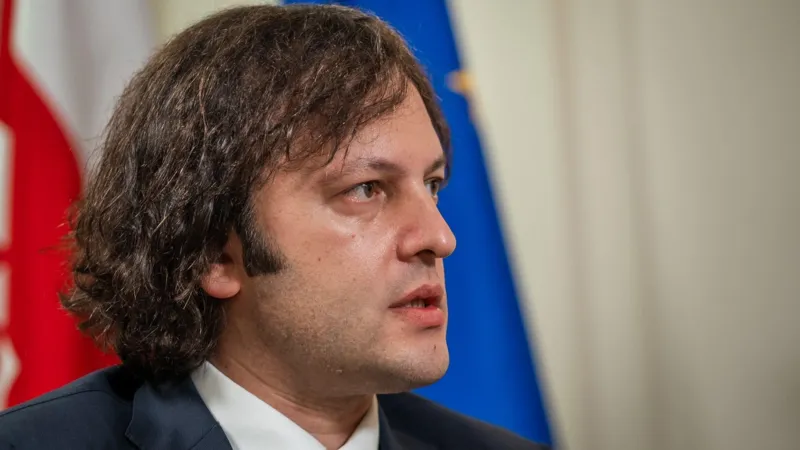Georgia’s Prime Minister, Irakli Kobakhidze, recently celebrated a “landslide” victory in the country’s elections, pushing back against claims that the vote was rigged and marred by violence. According to Kobakhidze, speaking in an interview with the BBC’s Steve Rosenberg, he said that while election problems can happen “everywhere,” the overall voting process was fair.
The official results, shared by Georgia’s election commission, showed the ruling Georgian Dream party winning 54% of the vote, enough for a majority in parliament. However, opposition TV channels had predicted that four opposition parties would be victorious, causing a lot of disagreement about the results. Georgia’s pro-Western President, Salome Zourabichvili, has called the election results a “total falsification” and has urged Georgians to gather outside the parliament for a protest on Monday, according to BBC.
Election monitors have pointed out that voting violations might have impacted the outcome, but Kobakhidze insists these were isolated issues, occurring in only a few voting stations out of over 3,000. BBC reports that Georgian Dream has become more authoritarian in recent years, pushing Russian-style rules against the media, foreign-funded groups, and the LGBT community. This shift has led the European Union to pause Georgia’s application to join, accusing it of moving away from democratic values.
One European Union member, Hungary’s Viktor Orban, congratulated Georgian Dream on its fourth win and plans to visit the capital, Tbilisi. This move could create tension with the EU, especially since Orban’s visit comes right after a disputed election, as noted by BBC. Georgian Dream, however, aims to restart talks with the EU about its membership bid.
The controversy has deepened as President Zourabichvili, joined by opposition leaders, labeled the election a “Russian special operation,” accusing Russia of meddling. BBC highlighted that this strong accusation has stirred political tension. Meanwhile, the European Council’s Charles Michel called for a serious investigation into the allegations, stressing that any irregularities must be transparently addressed.
Georgia’s opposition refuses to accept the election results, accusing Georgian Dream of “stealing the vote.” Despite this, Georgian Dream will hold 89 of the 150 seats in parliament—enough for a majority but not enough to make major constitutional changes. Some opposition parties, like the Coalition for Change and the United National Movement, plan to boycott the new parliament.
The prime minister argued in his BBC interview that accusations from the opposition are nothing new, noting that similar claims were made in past elections.
For the first time, Georgia used an electronic vote-counting system, which Kobakhidze claims made it impossible to cheat. However, groups monitoring the election have reported serious violations like bribery and voter intimidation, which they believe damaged the credibility of the results.
BBC also covered claims by some that Georgia might lean more towards Russia after the election. But Kobakhidze dismissed these concerns, asserting that Georgia, unlike its neighbors, has no diplomatic ties with Russia due to the occupation of its territory since a 2008 conflict.
Despite his reassurances, Russian media has welcomed Georgian Dream’s victory, suggesting a potential shift in the country’s foreign policy direction.
Credit : BBC
https://www.bbc.com/news/articles/c78ddj25kgvo

